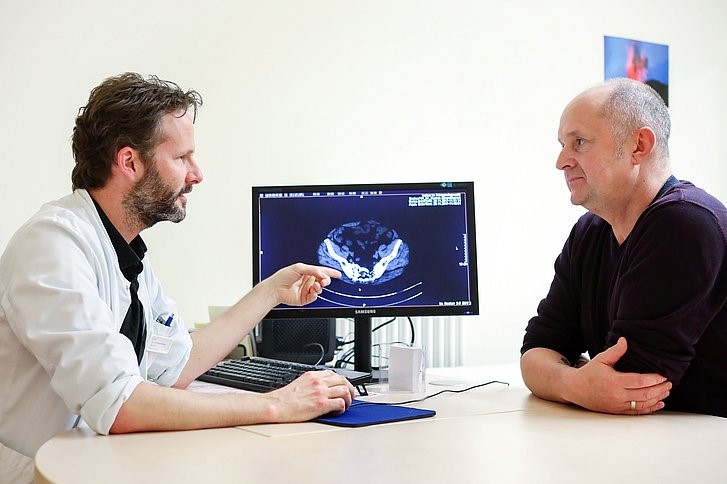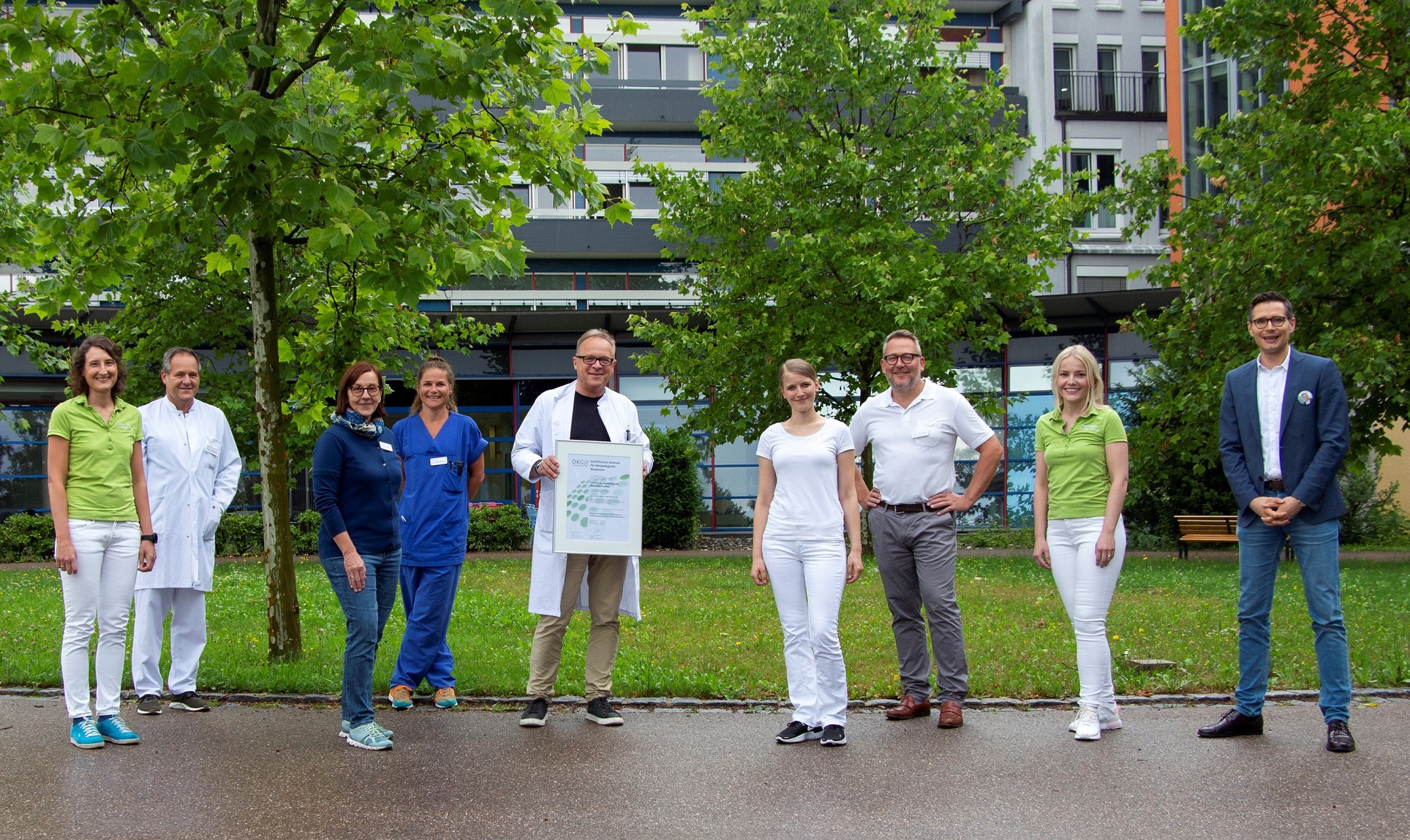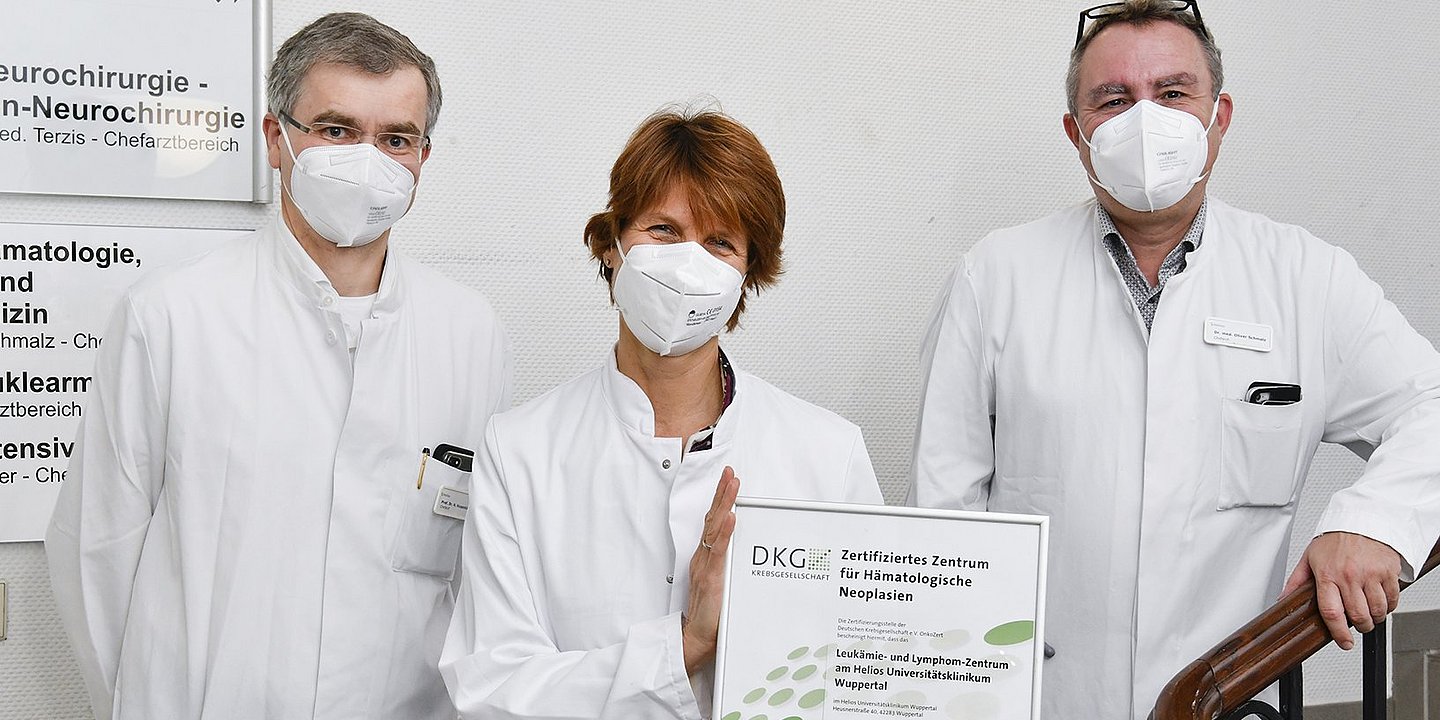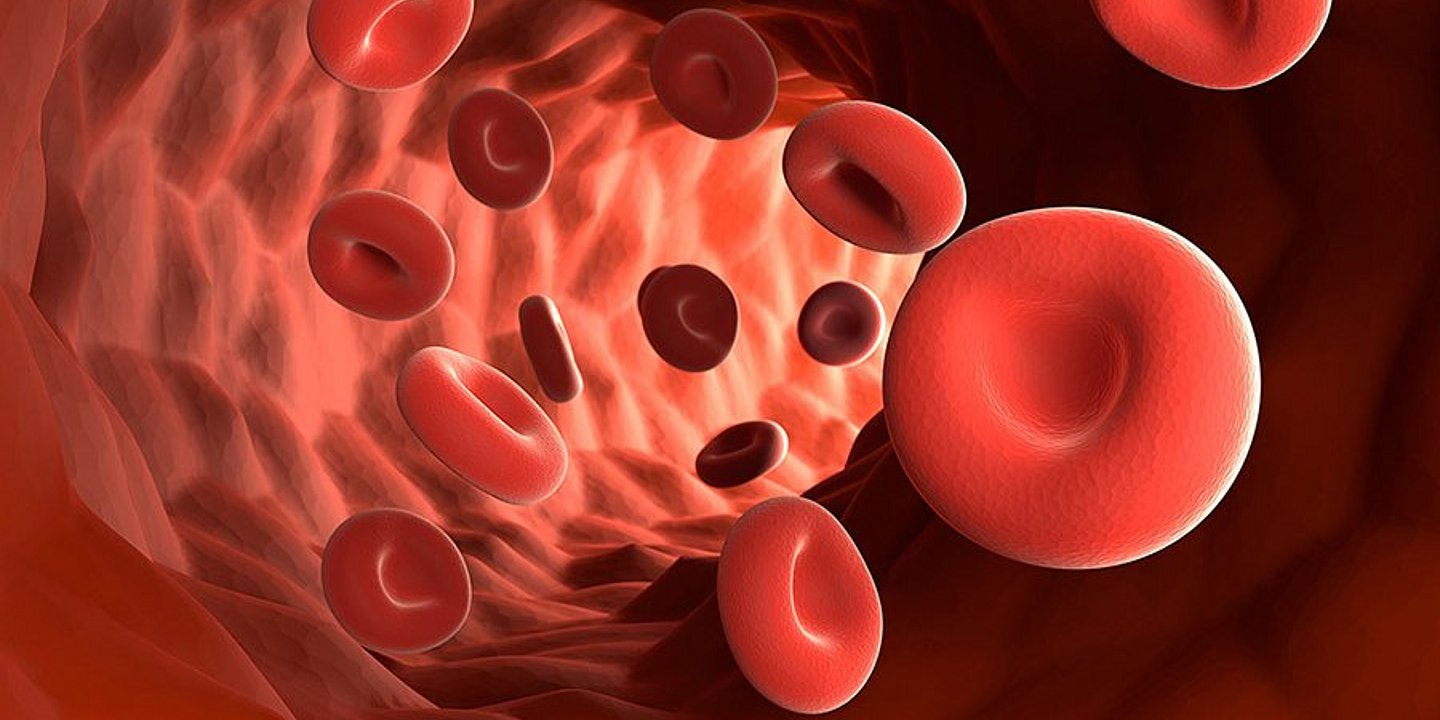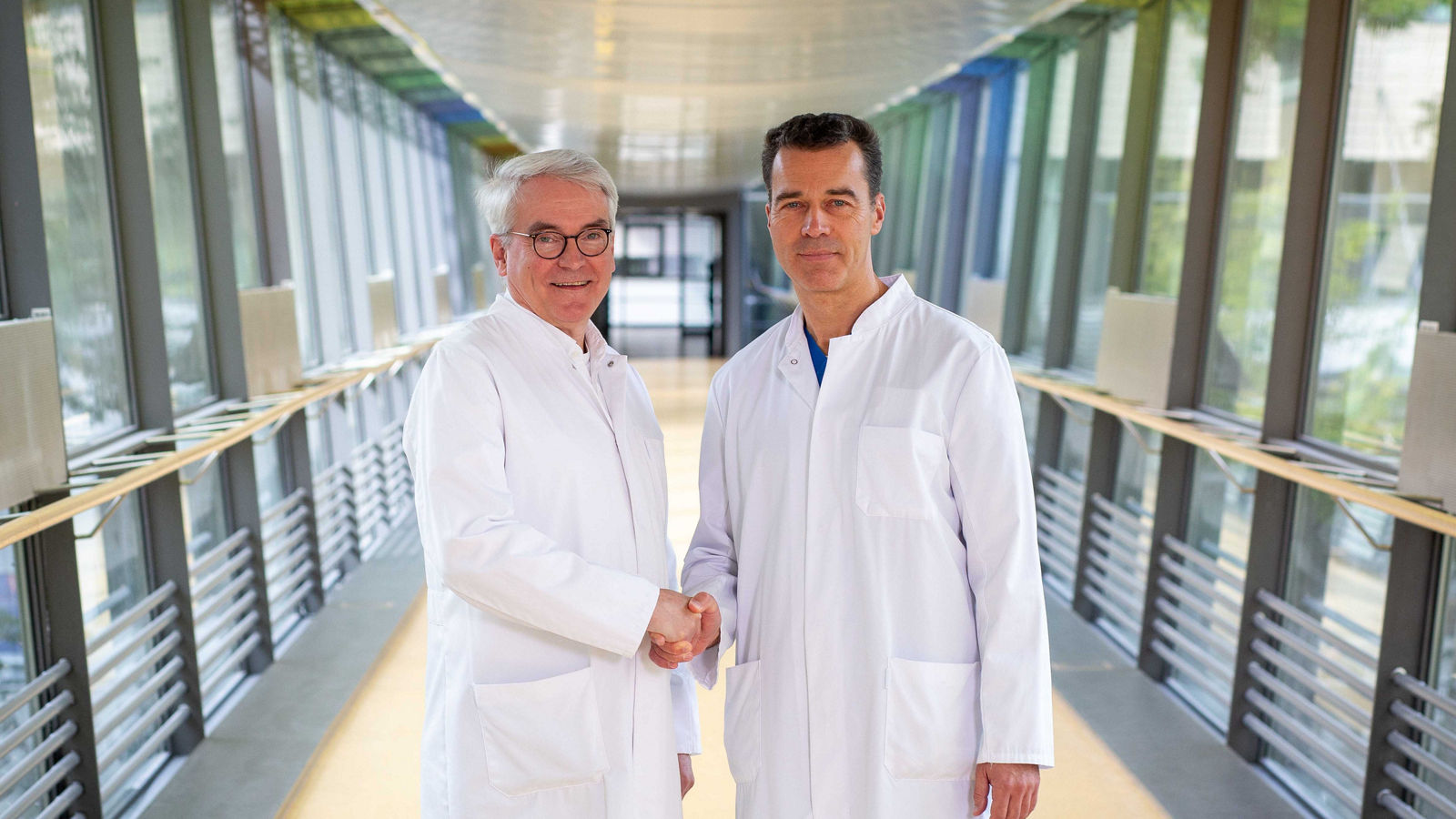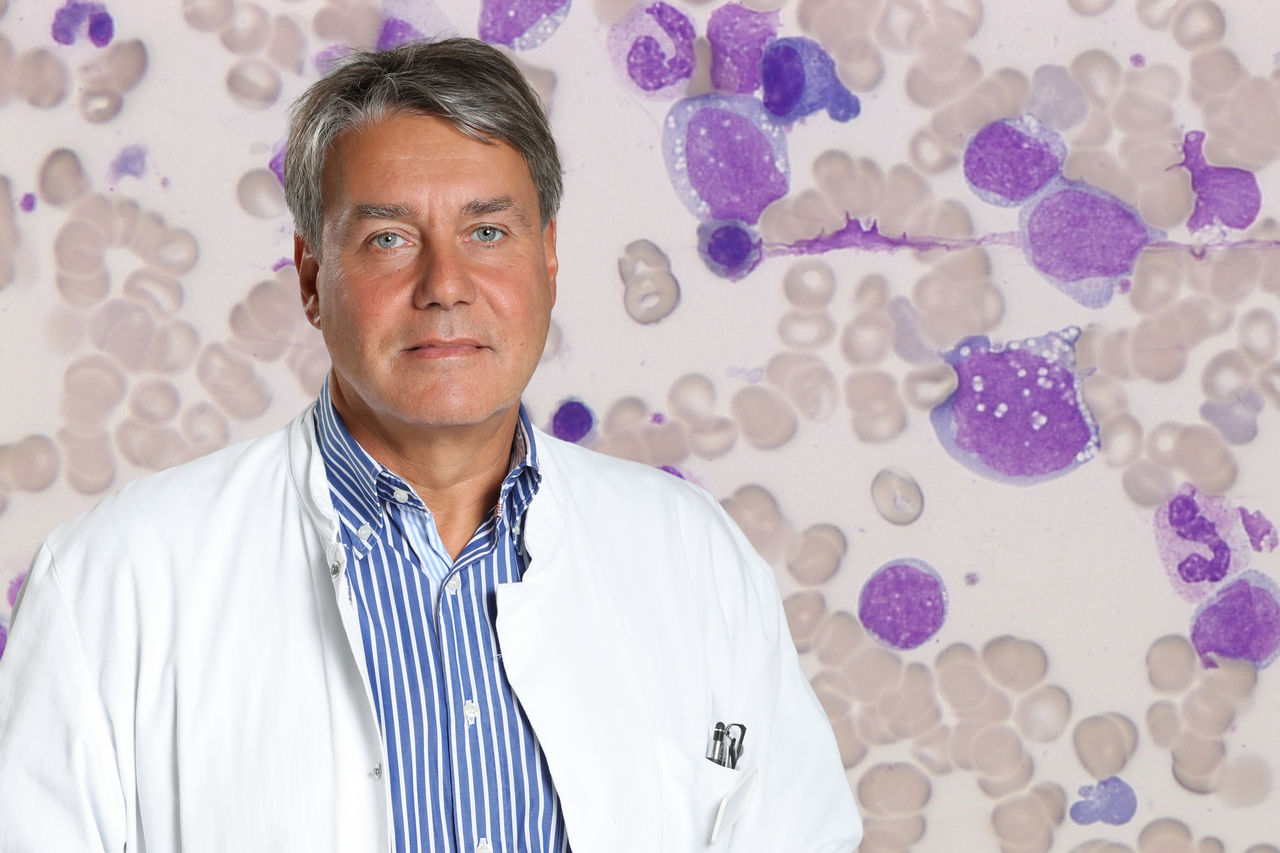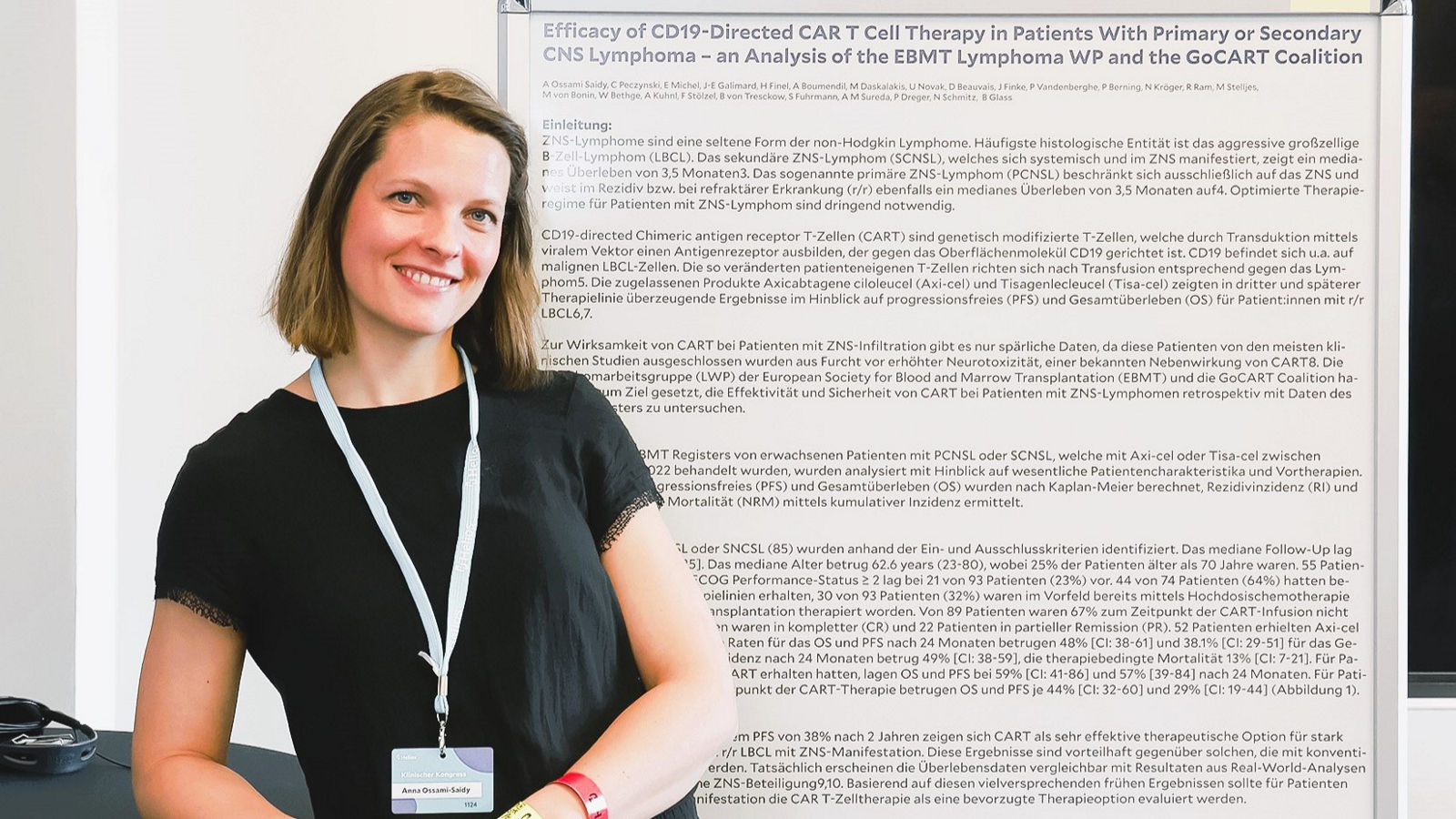
CAR-T cell therapy: Better chances of recovery and better quality of life
What have you been researching?
As a junior doctor in the Department of Haematology and Cell Therapy, which is headed by Prof. Dr. med. Bertram Glaß, my focus is on benign and malignant diseases of the haematopoietic and lymphatic system. On the ward, we treat cancer patients who require chemotherapy, stem cell transplants or immunotherapy - in particular CAR-T cell therapy. CAR-T cell therapy is a highly innovative and very effective procedure in which we first remove T immune cells from the patient's blood. These are then genetically modified so that they are able to recognize tumour cells. The modified T-cells are then returned to the patient's blood by infusion, where they can directly eliminate the malignant cells. This therapy method has already revolutionized the treatment of some cancers.
In our research project, we are investigating the possibility of said CAR-T cell therapy for patients whose central nervous system, or CNS for short, is affected by malignant lymphoma, i.e. a tumor that affects the lymphatic system. This special group of patients often has a very poor prognosis and a high demand for new forms of therapy. So far, however, these patients have been excluded from most clinical CAR T-cell trials, so we have no data on whether this type of immunotherapy could be effective in these patients. It would be hopeful news for patients with CNS lymphoma if CAR-T cells could also be successfully used in them. To investigate this question, we in the Lymphoma Working Group of the European Society for Blood and Marrow Transplantation (EBMT) and in collaboration with the GoCART Coalition have analyzed data from the EBMT's large registry on such patients who have been treated with CAR-T cells.
What is the result of your research?
Our data analysis has shown that the treatment results after CAR-T cell therapy in patients with CNS lymphoma are comparable to the results of patients with aggressive B-cell lymphomas without CNS involvement; and that the side effects are also within a similar range. Based on this, we advocate that patients with recurrent CNS lymphoma should be treated with CAR-T cell therapy as standard in the future, thus improving their chances of recovery and quality of life. We are already doing this at our Hemato-oncology Center in Berlin-Buch. As we have already been able to present our study at several congresses in Europe and also in the USA at the annual meeting of the American Society of Hematology, we hope that we will be able to draw attention to it beyond national borders.
What was the biggest challenge in your research project?
The biggest challenge was and is the balancing act between family life and professional commitment. I have two children of nursery age and a husband who is also very ambitious in his career. On the one hand, spending time with my family is incredibly important to me, but on the other, I want to be satisfied with my own professional performance - which also requires a lot of time and energy. I think many people who are at this stage in their lives are familiar with this conflict. Fortunately, I work in an environment where I receive a lot of understanding and support from my colleagues and my boss. And we also have a great support network in our private lives - this wouldn't be possible without grandma and grandpa.
Scientific publication on the study
Read more:
Do you need more information about Helios Hospitals or want to schedule your treatment?

